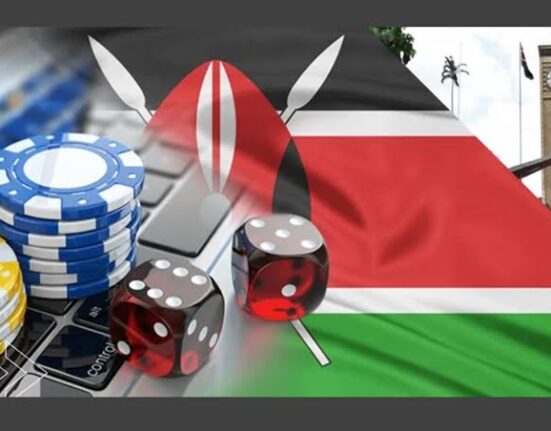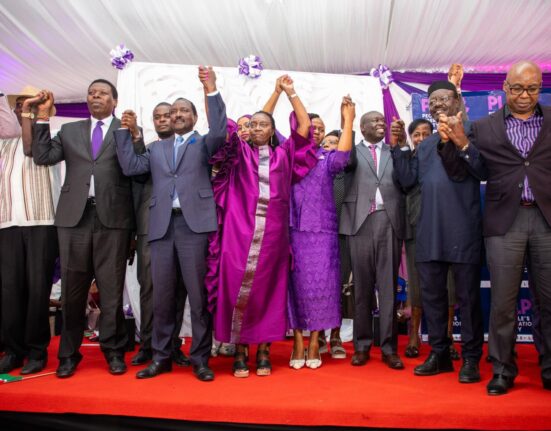By Clement Wasike
Nowadays, tension between rapid technological advancement and ethical governance often tilts toward chaos. If there is a sector prone to extreme infiltration by the rogue end of technology is betting.
However, Dr Jane Mwikali, Chairperson of Kenya’s Betting Control and Licensing Board (BCLB), has crafted a rare blueprint worthy of a case study. It is a regulatory regime that marries innovation with integrity. Dr Mwikali’s tenure took root amid a storm. Kenya’s gaming industry, an illicit arena of betting shops and predatory advertising then faced plummeting public trust.
Yet, rather than resorting to heavy-handed crackdowns, she pursued a strategy that leveraged technology to streamline oversight while embedding ethical imperatives into every policy.
The crowning breakthrough for Dr Mwikali was in the introduction of the Integrated Gaming Licensing System (IGLS), a game changer that personifies the value of balancing competing interests between technology and ethics.
Launched in 2022, the ingenious digital interface automated license applications, thereby slashing approval times radically and boosting license fee revenues by close to 50%.
By integrating data from tax authorities, law enforcement agencies and financial regulators, the IGLS locked out entities linked to or suspected to abet crime.
That move alone curbed money laundering by miles, an eventuality that beckoned reputable operators to come aboard.
More often than not upholding strict ethical standards is regarded as an impediment to quick gains in the business arena. However, to Dr Mwikali, leadership with a long view into the future ought to first dismantle that kind of thinking.
Under her watch, the BCLB introduced Africa’s most robust responsible gaming framework, mandating operators to allocate part of their gross earnings to the National Responsible Gaming Fund.
Perhaps Dr Mwikali’s boldest ethical stance so far came last month, when she suspended all gambling advertisements for 30 days, citing exploitation of vulnerable populations segments of the society.
The move, though initially met with resistance by some industry players, compelled operators to submit ads for vetting and standardization before presenting them for airing. This approach has been hailed by jurisdictions beyond Kenya.
Today, Dr Mwikali’s erstwhile critics acknowledge her diplomatic finesse and thoughtfulness in steering an otherwise volatile sector to safe shores. Kenya has no reason to return to the backwoods of devil-take-it-all gaming anarchy that preceded Dr Mwikali’s tenure.
The blame heaped on gaming is clearly a phenomenon of diminished views of unethical conduct by crooked industry players who lionize profiteering no matter the injury caused in the process of raking it.
In the normal world, there is no transformation without friction. Underground betting rings persist and all manner of corner cutting is rife in gaming.
Well aware of this fact, Dr Mwikali has responded with deployment of technology, her own admission being that regulation is “a perpetual race against ingenuity.”
She, by implication, acknowledges that that ingenuity could well be ill intended. In Dr Mwikali’s case it is positive inventiveness that must e=win over the craftiness of wily operatives of the gaming sector.
No wonder Dr Mwikali would be found by the African Union to be the perfect leader of a continental task force on gaming regulations. Beyond policy, Dr Mwikali’s persona that is a blend of reverend, entrepreneur and technocrat shapes her approach to regulatory matters.
An ordained minister at Freedom Embassy, she often speaks of governance as a “moral vocation.” Her entrepreneurial ventures, including Neema Supreme Distributors and the Great Grace Empowerment Institute, inform her pragmatism.
This duality enables her to navigate boardrooms and grassroots communities with equal ease.Dr Mwikali’s tenure at the BCLB is a lesson in ethical innovation.
By refusing to pit progress against principles, she has demonstrated that regulation need not stifle growth. Instead it should serve as a catalyst for progress. Kenya’s gaming sector, once a cautionary tale now stands as proof that integrity and ingenuity are mutually reinforcing.
As other African nations look to Nairobi for guidance, Dr Mwikali’s legacy resonates as a clarion call and salsa between innovation and ethics where neither partner should go about it without the other.
Wasike is a former banker turned social critic and political commentator













Leave feedback about this